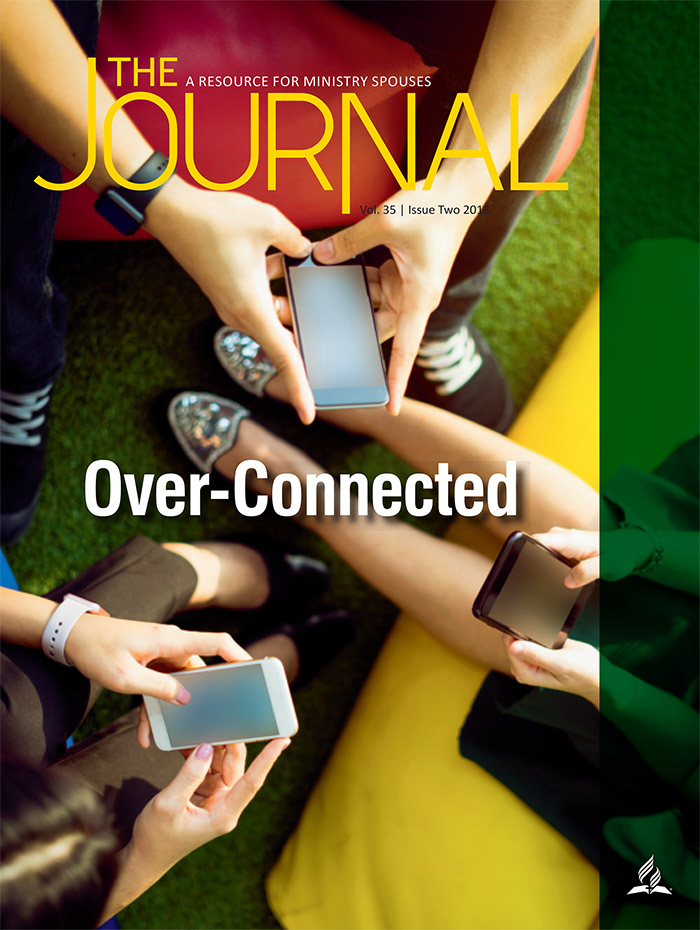A COUPLE SITS ACROSS FROM EACH OTHER at a restaurant table. Slight smiles play at the corners of their lips as they gaze adoringly down at the small, mesmerizing screens they hold in their hands.
A family relaxes in their sitting room, spending quality time together. Mother drools over a decadent recipe posted on Instagram; Father laughs at a tweet on Twitter; the kids’ eyes are glued to the computer—they’re enchanted by the fast-moving, colorful
scenes on the screen.
What is wrong with these two scenarios? Are these families really spending time together? And what about the effect artificial stimulation has on their social, mental, and spiritual development? For millions of people around the world, media usage or—dare I
say—addiction has profoundly impacted not only their relationships but the way they view life in general.
Carolyn Crist, a freelance health and science journalist, shares: “In the last few years, research has begun to tell
us just how awful social media is for our brains. It can lower our self-control, which can boost impulse spending and food cravings. It can make us more open to peer pressure. It seems to hurt our self-esteem and make us feel lonely, frustrated and angry when comparing ourselves with others. And the online chat functions can seriously mess up our perceptions of everyday in-person interactions”1
A recent online post by Psychology Today agrees:
“Have you ever seen a mother chuckle as her baby tries to ‘swipe’ a real photograph, or punch their fingers onto a poster or books as if it were a touchscreen? It may seem cute, but it points to something much deeper in the child’s brain—an internalization that all actions have an immediate effect, and all stimuli elicit a quick response.
“This is true in the on-screen world, but nowhere else. When every finger swipe brings about a response of colors and shapes and sounds, a child’s brain responds gleefully with the neurotransmitter dopamine, the key component in our reward system that is associated with feelings of pleasure. Dopamine hits in the brain can feel almost addictive, and when a child gets too used to an immediate stimuli response, he will learn to always prefer smartphone-style interaction—that is, immediate gratification and response—over real-world connection” (emphasis supplied).2
This information is alarming on so many levels. This was never the life God intended for us. He created us hardwired for intimacy, with a longing for personal interaction and connection with others. He created us to have sound minds, exercising self-control (Galatians 5:22, 23). That feeling of immediate gratification—getting what you want when you want —is addicting and deceptive, especially in spiritual terms. When my prayers aren’t answered exactly the way I want or in my timeframe, how do I view God?
Does media have great things to offer? Sure! Appropriately used, media is incredibly helpful and should be utilized. But careful boundaries should be set in place to control the time consumed and the content viewed. In this issue of The Journal, you will
find articles specifically addressing “screen time.” We hope to offer a balanced view of both the benefits and the challenges associated with exposure to media. We pray you’ll be blessed.
1 pastemagazine.com/articles/2017/02/onthe-mind-your-brain-on-social-media.html.
2 psychologytoday.com/blog/behind-onlinebehavior/201604/what-screen-time-can-reallydo-kids-brains).
